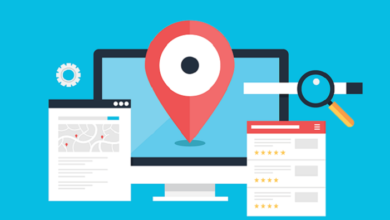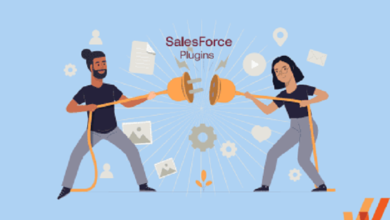Big Data Software Unleashing The Power of Big Data: A Comprehensive Guide to Big Data Software

What Is Big Data and Why Is It Important?
Big data refers to datasets that are so large or complex that traditional data-processing software can’t handle them efficiently. These datasets are characterized by the “three Vs”: volume, variety, and velocity. Big data software is crucial for organizations to handle, analyze, and extract meaningful insights from these datasets. In today’s world, big data is integral to decision-making processes, helping organizations optimize operations, predict future trends, and stay ahead in competitive industries.
How Big Data Software Works
Big data software utilizes advanced algorithms and tools to process, store, and analyze large datasets. It integrates different types of databases, cloud technologies, and data analysis techniques to create a comprehensive ecosystem for handling big data. Whether through batch processing or real-time analytics, big data software streamlines the process of extracting valuable insights from vast amounts of information. The software typically leverages technologies like Hadoop, Spark, and NoSQL databases to manage these large datasets effectively.
Key Features of Big Data Software
Big data software includes several key features that make it suitable for processing vast datasets. Some of the essential features include:
- Data Integration: Ability to combine data from different sources.
- Scalability: Handling increasing amounts of data over time.
- Real-time Analytics: Processing data as it is created or updated.
- Data Visualization: Presenting insights in a visual format for easier understanding.
- Data Security: Ensuring that sensitive data is protected through encryption and access controls.
- Cloud Integration: Seamless connection to cloud platforms for storage and analysis. Types of Big
Data Software Solutions
There are several types of big data software solutions available today. These can be broadly categorized into:
- Data Storage Solutions: Tools for storing and managing large volumes of data, such as Hadoop and NoSQL databases.
- Data Processing Solutions: Software designed to process large datasets, such as Apache Spark and Apache Flink.
- Data Analytics Solutions: Tools for analyzing data and gaining insights, like SAS, IBM Watson, and Microsoft Power BI.
- Data Visualization Tools: Software used to present data insights in a visual format, such as Tableau and Qlik.
Best Big Data Software for Businesses
When evaluating big data software for businesses, there are several top contenders that stand out for their functionality, scalability, and integration capabilities. Some of the best big data software solutions include:
- Apache Hadoop: An open-source framework for storing and processing large datasets.
- Cloudera: A popular enterprise data cloud platform for big data management.
- Microsoft Azure HDInsight: A fully managed cloud service for big data processing.
- Google BigQuery: A data warehousing tool optimized for running SQL queries on large datasets.
- IBM Watson Analytics: A powerful tool for business intelligence and predictive analytics.
Big Data Software vs Traditional Data Software
Big data software differs from traditional data software in its ability to handle vast volumes of data and its support for real-time analytics. Traditional data software typically relies on structured data and is limited by scalability, whereas big data software can process both structured and unstructured data. Additionally, big data software often employs distributed computing, allowing for parallel processing of multiple data streams, something that traditional data tools cannot do effectively.
The Role of Big Data Software in Business Intelligence
Business intelligence (BI) refers to the tools and strategies that companies use to analyze business data for decision-making purposes. Big data software plays a critical role in BI by enabling organizations to analyze large datasets and uncover trends and patterns that are not visible in smaller datasets. By leveraging big data software, businesses can make data-driven decisions faster and more accurately, improving performance and gaining a competitive edge in the market.
The Future of Big Data Software
The future of big data software is closely tied to emerging technologies such as artificial intelligence (AI), machine learning (ML), and the Internet of Things (IoT). As the amount of data continues to grow exponentially, big data software will need to evolve to handle even larger datasets and more complex analytics. Furthermore, advancements in automation and predictive analytics will make big data software more efficient and accessible for businesses of all sizes.
How to Choose the Right Big Data Software
Choosing the right big data software depends on several factors, including the type of data you need to process, the volume of data, and your business objectives. Key considerations include:
- Scalability: Can the software grow with your data needs?
- Integration: Does it integrate well with your existing systems?
- Security: Does it offer strong data protection features?
- Cost: Is it within your budget?
- Ease of Use: Is the software user-friendly and accessible to your team?
Big Data Software for Data Scientists
Data scientists rely heavily on big data software for analyzing and modeling data. With tools like Apache Spark, Python, and R, data scientists can apply advanced analytics techniques to gain insights from large datasets. These software solutions offer features like parallel processing, machine learning libraries, and integration with cloud platforms, making them essential tools in data science workflows.
Big Data Software for Marketing and Sales
In marketing and sales, big data software can analyze customer behavior, predict trends, and optimize campaigns. By processing data from various touch points—social media, website analytics, and customer feedback—businesses can better understand their target audience and personalize their offerings. Tools like Google Analytics, Adobe Analytics, and Salesforce Einstein are examples of big data software used for marketing analytics.
Big Data Software for Healthcare Industry
The healthcare industry generates massive amounts of data from patient records, medical devices, and research studies. Big data software helps healthcare providers analyze this data to improve patient outcomes, streamline operations, and predict healthcare trends. Platforms like IBM Watson Health and Cloudera’s healthcare solutions are transforming the way healthcare organizations manage and analyze big data.
Big Data Software for Finance
In the finance industry, big data software is used for fraud detection, risk management, and predictive analytics. By analyzing large datasets from financial transactions, market movements, and social trends, financial institutions can make more informed decisions. Tools like SAS, Oracle Big Data, and Microsoft Azure are popular choices for big data analytics in finance.
Big Data Software for Retail
Retailers are increasingly using big data software to enhance customer experiences, optimize supply chains, and personalize marketing efforts. By analyzing customer purchase data, inventory data, and market trends, retailers can make data-driven decisions to improve sales and reduce costs. Solutions like SAP HANA, Oracle Retail, and IBM Watson Analytics are used by retailers for big data analysis.
Security Considerations in Big Data Software
Security is acritical concern when using big data software, as organizations must ensurethat sensitive data is protected from breaches. Features like encryption, access control, and data anonymization are essential for securing data in big data environments. Big data software solutions should comply with industry standards and regulations such as GDPR and HIPAA to ensure data privacy and security.
Cloud vs On-Premise Big Data Software
One of the biggest decisions organizations face when selecting big data software is whether to go with a cloud-based solution or an on-premise solution. Cloud-based big data software offers
Conclusion
Big data software empowers organizations to unlock the full potential of their data. By leveraging these tools, businesses can gain a competitive edge, improve decision-making, and drive innovation. As the volume, velocity, and variety of data continue to grow, it is essential to stay up-to-date with the latest advancements in big data technology. megafamous By effectively managing and analyzing big data, organizations can unlock new opportunities and shape the future.
FAQs
- What is big data software?
Big data software is a set of tools andplatforms designed to store, process, and analyze large and complex datasets, enabling businesses to make data-driven decisions.
- How does big data softwarework?
It works by collecting, storing, and analyzing vast amountsof data using advanced algorithms and distributed computing methods to extractvaluable insights.
- What are some examples of big data software?
Popular examples include Hadoop, Apache Spark, Google Big Query, and IBM Big Data and Analytics.
- Is big data softwareexpensive?
The cost can vary widely depending on the scale of deployment, with cloud-based solutions offering more flexible pricing.
- Can small businesses use big data software?
Yes, cloud-based big data software can be an affordable and scalable option for small businesses to leverage data analytics.
- What industries benefit frombig data software?
Industries like healthcare, finance, retail, manufacturing, and marketing all benefit from using big data software.
- What are the benefits of using big data software?
Benefits include improved decision-making, cost reduction,enhanced customer experiences, and increased operational efficiency.
- What are the challenges ofusing big data software?
Challenges include data security, the need for skilledprofessionals, and the cost of implementing and maintaining big datainfrastructure.
- Is big data software secure?
Yes, many big data software platforms have built-in security features like encryption and access control to protect sensitive data.




